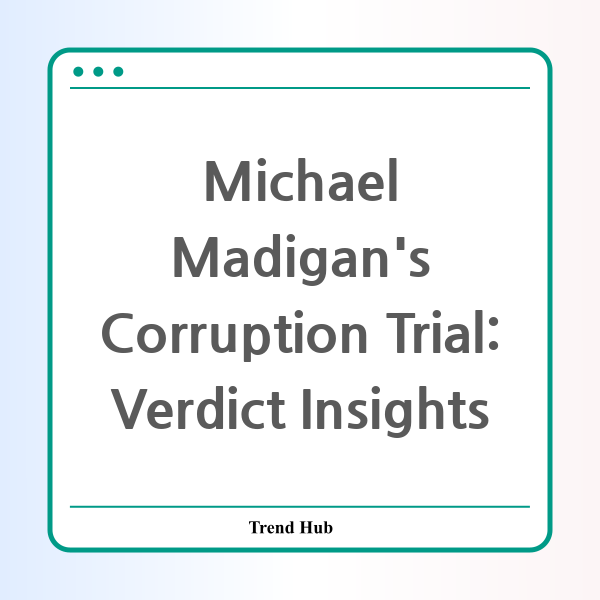* This website participates in the Amazon Affiliate Program and earns from qualifying purchases.

What does the corruption trial of Michael Madigan mean for Illinois politics? This question has reverberated through the halls of power, reflecting on a political era that is now marred by allegations of corruption and misconduct. Michael J. Madigan, the former Illinois House Speaker, has been at the center of a significant federal jury trial that has unveiled a multitude of serious charges against him.
Recently, a federal jury delivered a partial verdict in the Madigan trial, finding him guilty of bribery conspiracy, bribery, and wire fraud on 10 counts. However, the jury was deadlocked on an additional 12 counts, which included serious charges such as racketeering conspiracy. This important legal milestone not only shapes Madigan's legacy but also has implications for the future of governance in Illinois.
The trial has been ongoing for months, encapsulating more than 60 witnesses and significant testimony over 11 weeks. This comprehensive exposure highlights the depth of the allegations against Madigan – accusations that suggest he orchestrated a scheme of corruption where power and profit eclipsed ethical governance. It appears that Madigan was not just involved in petty acts of bribery; the prosecution has painted a picture of a seasoned politician who meticulously worked to secure his influence and wealth, leaving a trail of compromised integrity in his wake.
During the proceedings, Madigan's defense team attempted to portray their client as a political operator who simply helped friends find work, asserting that his actions were legitimate and not motivated by corruption. However, evidence presented in the trial, including a previously barred recording of a conversation between Madigan and his associate Michael McClain, suggested otherwise. The laughter exchanged over the idea of people being compensated without doing work cast a dark shadow over his claims of innocence.
Madigan's longstanding influence over Illinois politics means that his downfall has significant repercussions for the state's Democratic Party and its operations. He was a formidable figure, leading the party for two decades and serving as a legislator for 50 years. His convictions add to a growing list of local and state leaders facing federal charges, signaling a crackdown on political corruption in Illinois.
As jurors reached a unanimous decision on 17 counts while struggling to agree on 12 others, the question remains: What will the future hold for Madigan and Illinois politics? The deadlocked charges indicate that while some aspects of the case have been decided, the fight over accountability may continue, either through appeals or further legal actions.
The ongoing investigation into Madigan’s activities and those of his co-defendants implies that this is likely not the end of the story. Federal prosecutors earlier charged Madigan and his co-defendant with multiple counts related to bribery and racketeering tied to Commonwealth Edison, which involved payments of substantial sums in exchange for favorable political actions.
As Madigan now confronts his convictions, the political landscape in Illinois may shift dramatically. The verdicts serve as a cautionary tale for politicians about the potential consequences of corruption and the ongoing scrutiny that high-level officials face in their operations. Moreover, it rekindles conversations about ethics, accountability, and the mechanisms for preventing corruption in government.
In conclusion, the verdict in Michael Madigan's trial not only reflects a pivotal moment in his career but also invites larger discussions about the future of political integrity in Illinois. As more details emerge and the legal aftermath unfolds, all eyes will be on the implications of this case for state politics and governance.
* This website participates in the Amazon Affiliate Program and earns from qualifying purchases.